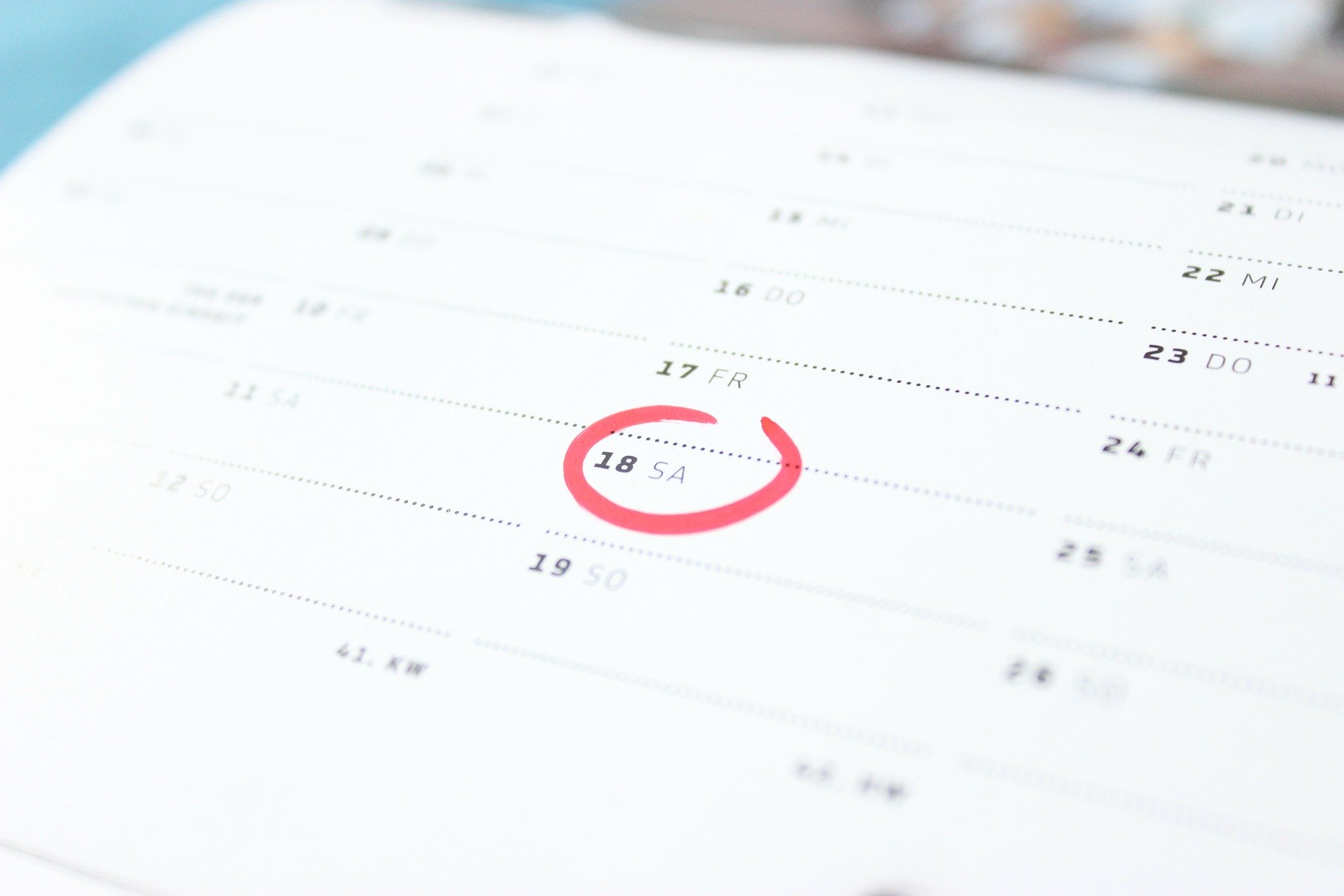How Do I Say Or Write Dates in Spanish?

Get our free email course, Shortcut to Conversational.
Have conversations faster, understand people when they speak fast, and other tested tips to learn faster.
More infoToday, we are talking about dates in Spanish – no, not dating, but instead knowing how to express the day/month/year in written or verbal form.
(For vocab on dates of the romantic kind, head over to our post on flirting in Spanish)
The difference between writing and saying dates in Spanish vs in English is mostly subtle.
In most cases, it will depend on whether you are expressing a date in an informal or formal context – the latter being something like a legal document.
Let’s begin by stating two differences between days of the week/months in Spanish vs English.
- Days of the week and months in Spanish are only capitalized when placed at the start of a sentence.
- Days of the week and months in Spanish are always masculine and single
For example:
- Monday, February 3 – Lunes 3 de febrero
- The test will be on Friday – El examen será el viernes
- Sundays are my favorite day of the week – Los domingos son mis días favoritos de la semana.
- My parents will visit me on Saturday – Mis padres me visitarán el sábado.
(You can find a separate post on days, months and seasons vocab)
Now, back to dates in Spanish
In Spanish, you do not say or write dates in their ordinal form (2nd, 15th, 21st etc).
The only exception to this rule is for the first day (primero) of each month, as shown below:
- The 1st of January – El primero de enero
- The 1st of November – El primero de noviembre
For any other date, you use cardinal numbers (2,15, 21).
(the only other exception is some legal/formal documents that tend to have dates written in their ordinal form)
The formula for expressing other date sis simple: cardinal number + de + month
The major difference here is that in Spanish, the month always comes after the day, whereas in English, the month can go before or after the day.
For example:
- The supermarket will be open on the 2nd of January – El supermercado estará abierto el dos de enero
- Franco was born on June 15th – Franco nació el quince de junio
- I’ll be arriving on July 4th – Llegaré el cuatro de julio
- The wedding will be on Monday, March 16th – Lunes, dieciséis de marzo será la boda
How to express the year in Spanish?
Just like in English, there are two ways to express certain years, depending on how specific you want to be.
For example, 1970 (specific) vs the 70s (not-specific).
- 1970 – Mil novecientos setenta
- Studio 54 was the most famous nightclub of the 70’s – Estudio 54 era la discoteca más famosa de los setenta
Let’s see more general examples:
- 1900 – Mil novecientos
- I was born in 1984 – Yo nací en mil novecientos ochenta y cuatro
With certain periods (i.e. 1900 to 1999) you can say the complete year or just the two last cardinal numbers of the year.
Just like in English, referencing the 2000’s always requires you to state the full year:
- 2000 – Dos mil
- That song is from 2002 – Esa canción es del año dos mil dos
- I’m going to travel in Europe in 2021 – Voy a viajar por Europa en el dos mil veintiuno
Here is a final reminder of how you could say specific years in Spanish.
| Year | Spanish |
| 1900 | Mil novecientos |
| 1910 | Mil novecientos diez |
| 1950 | Mil novecientos cincuenta |
| 1980 | Mil novecientos ochenta |
| 1990 | Mil novecientos noventa |
| 2000 | Dos mil |
| 2010 | Dos mil diez |
| 2020 | Dos mil veinte |
Finally, how do you write or say entire dates in Spanish
And to finish, you can see how entire dates are written and said in Spanish.
When stating the entire date, the year usually comes after the month and day, just like in English.
In the written form, you can choose to use de or del before the year, with the latter being a bit more formal
| Format | Shorthand | Written Form | Verbal Form |
| DD/MM/YY | 05/02/2020 | 05 de febrero del 2020 | El cinco de febrero del dos mil veinte |
| DD-MM-YY | 06-02-1980 | 06 de febrero de 1980 | El seis de febrero de mil novecientos ochenta |
| Weekday, DD/MM/YY | Lunes, 10/02/2020 | Lunes, 10 de febrero del 2020 | El lunes diez de febrero del dos mil veinte |
| YY – MM – DD | 1990, Octubre 15 | — | Mil novecientos noventa, octubre quince |



